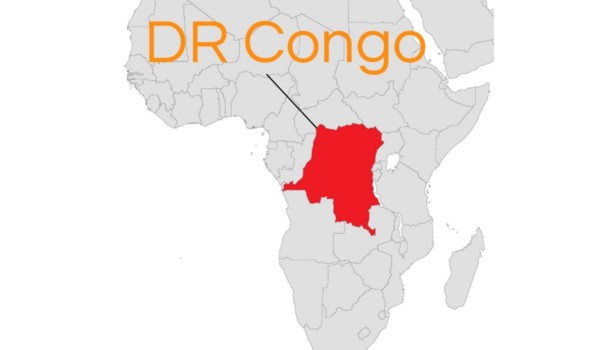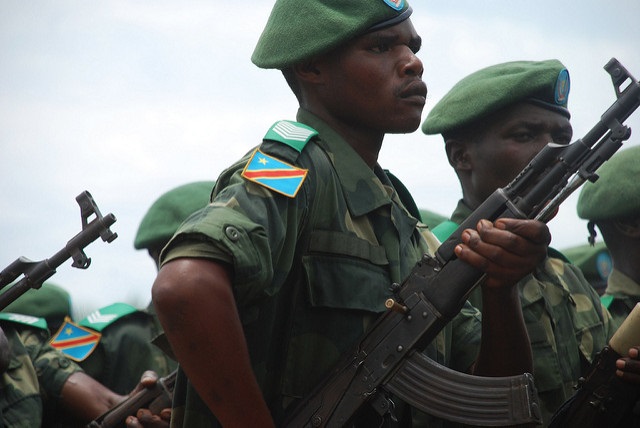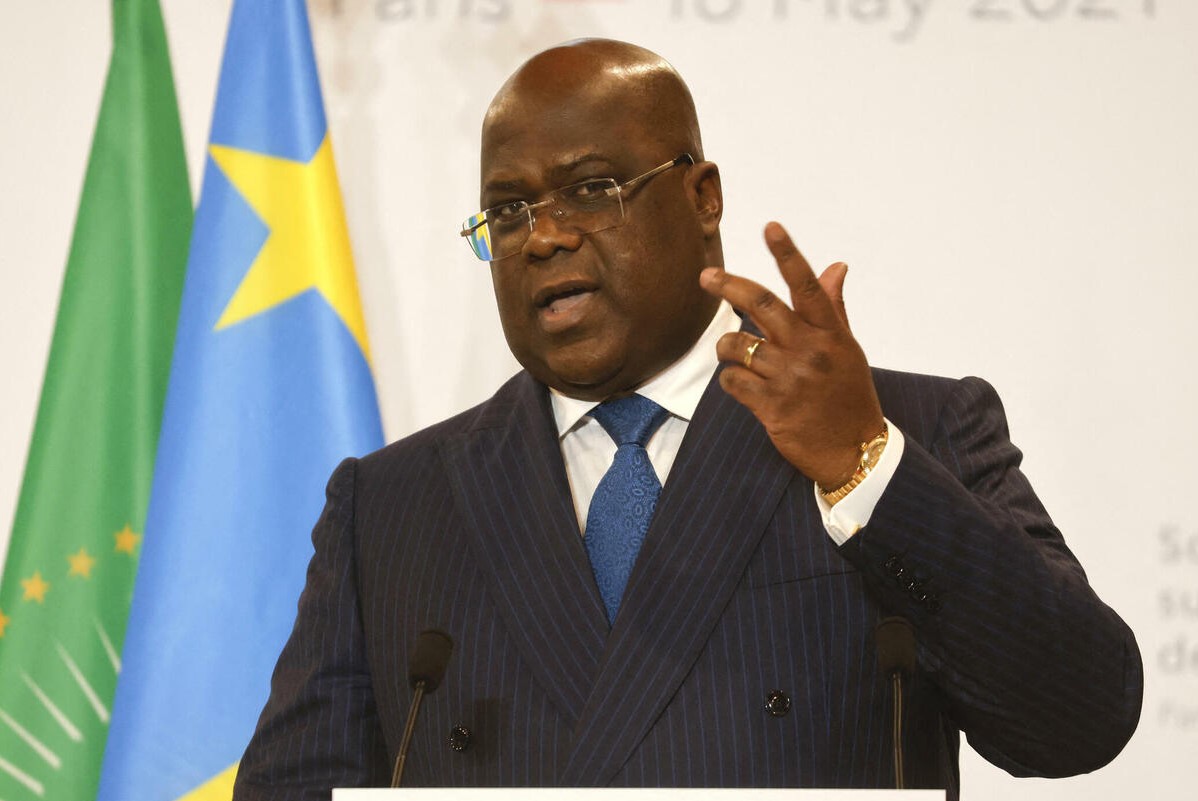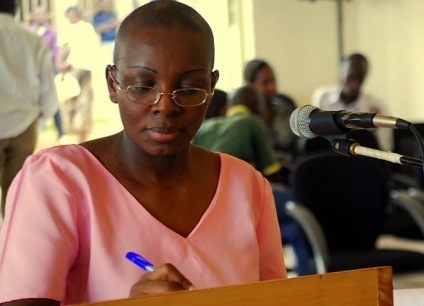Regional
Tshisekedi purges military to ‘separate wheat from chaff’; to what end?
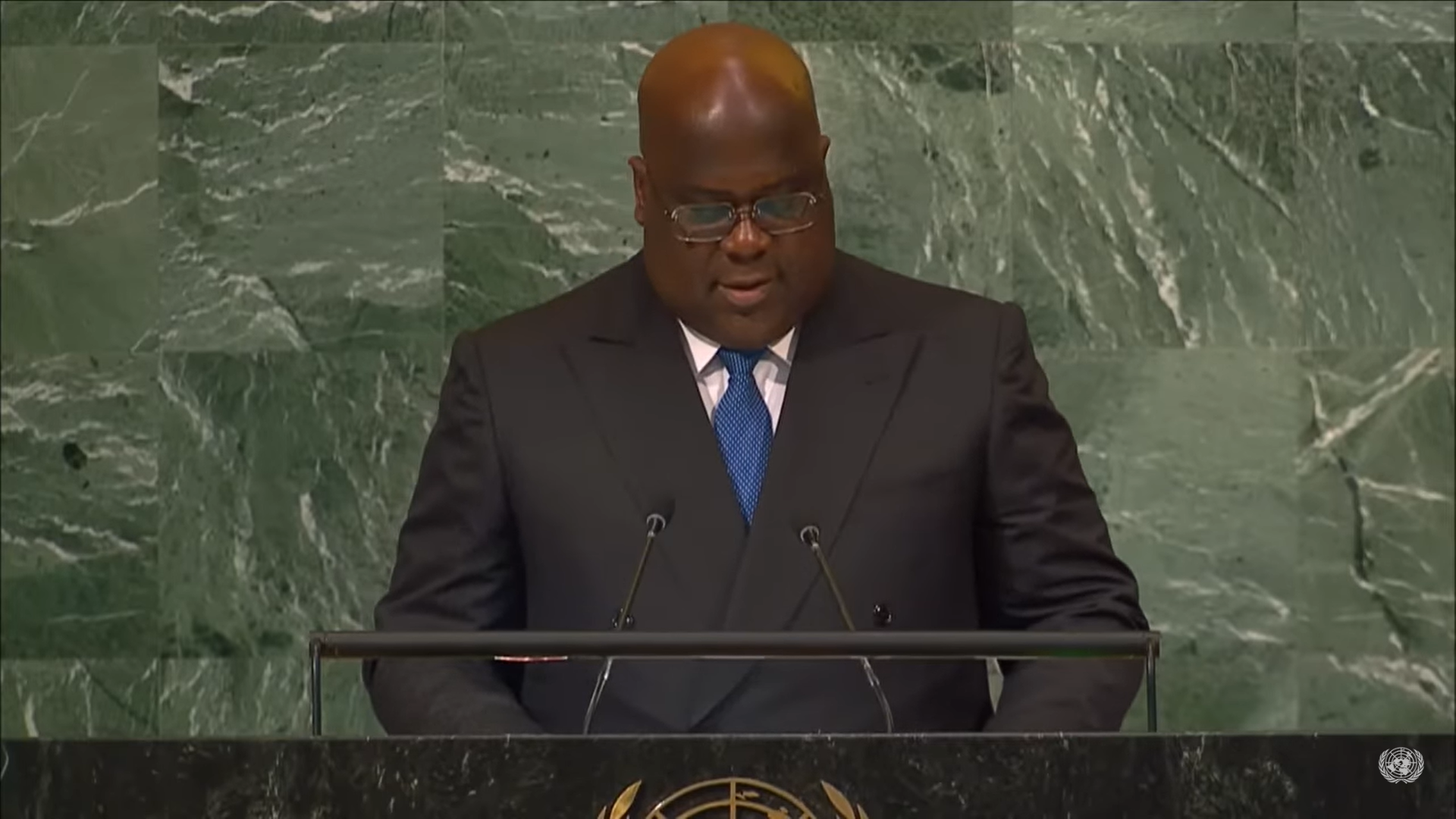
President Félix-Antoine Tshisekedi of the DRC addresses the UN General Assembly’s 77th session in September 2022. Later, in the military reforms meant “to separate the wheat from the chaff,” Tshisekedi mistakenly named a dead commander, Maj-Gen Floribert Kisembo, as the new head of military operations in North Equateur Province. The late General died in 2011 but, 11 years on, his name was in a presidential decree read out on national television.
During a military parade at Camp
Kokolo, the Congolese army headquarters, in Kinshasa, on October 13, President
Félix Tshisekedi officiated at a ceremony in which Lt-Gen Christian Tshiwewe Songesha, the man he appointed as the
new chief of general staff of the Armed Forces of the Democratic Republic of
Congo (FARDC), took over from Gen Célestin Mbala Musense.
The move, as reported, was part of
broader military reforms aimed at boosting efficiency. This was the first major
change made by Tshisekedi in the army since he came to power.
In a presidential order read out on
state television earlier, on October 3, Tshisekedi said the army was
“heterogeneous” and needed “a purge to separate the wheat from the chaff.” As
indicated, the Congolese leader wishes to have an army that obeys a single
leader and has a singular command structure.
Tshisekedi said the Congolese army was
composed of former Zairean armed forces, former rebels from 1997 and other
insurgents integrated into the country’s army and, as such, some officers “still
obey their former leaders.”
The October 13 ceremony marked by a
parade of FARDC units from the Land Force, Air Force, Naval Force and
Republican Guard of the Kinshasa garrison began with a word from the outgoing chief
of general staff, Mbala. The latter was first appointed to head the army in
July 2018, by former President Joseph Kabila.
Mbala paid tribute to the President
for the confidence granted to him, having led the Congolese army during the
electoral and post-electoral period of 2018. Mbala, among other things, wished Tshiwewe
success while calling on the military to be loyal and obedient to the new army
authorities.
Tshiwewe, 54, was the commander of the
elite unit in charge of the President’s security.
He took the oath of obedience and
loyalty to the President of the Republic, and made a commitment to defend the
independence and territorial integrity of the country until the supreme
sacrifice. He also swore to carry out, with loyalty, all the missions that the
president will entrust to him. The chorus of loyalty was music to Tshisekedi’s
ears. The purges within the military signal Tshisekedi’s intention to have full
control of the armed forces but more so in terms of loyalty, than efficiency,
as he readies to seek a second five-year term in December 2023.
The end of Tshisekedi’s first
five-year term is fast approaching and he has already declared that he will stand
for re-election. Tshiwewe, a three-star general, is the very
first FARDC chief of general staff not from the ranks of the former forces
armées zaïroises (FAZ) from the Mobutu era.
The new deputy chief of staff in
charge of operations, Jerome Chico Tshitambwe, also
comes from Republican Guard. Tshisekedi also replaced the leadership of
military intelligence, appointing Maj-Gen Christian Ndaywel to replace Gen Michel Mbala Mandiangu. The
latter replaced Gen Delphin Kahimbi who died in February 2020 under unclear
circumstances.
"Almost the entire staff has been
replaced by young officers. Several are from the Republican Guard, but not all,
and that's because they have proven themselves," the president's deputy
director of communications, Giscard Kusema, said.
The question is; what have they proven
themselves in? Loyalty? Perhaps, yes. Efficiency in dealing with the militia
groups killing citizens in the east of the country? No. The wave of
appointments in the army and intelligence services came on the back of
dismissals, including that of François Beya Kasonga, 67, a former presidential security adviser
accused of undermining state security. He was arrested on February 5 by the National
Intelligence Agency (ANR). There were claims that Beya was at the center of a
"conspiracy" against Tshisekedi even though the former was said to have
played a vital part in the transfer of power from Kabila to Tshisékedi in
January 2019.
The former Congolese spymaster known
as “Fantomas” often told those close to him that he was the victim of a fight
within the presidency. Beya rubbed shoulders with the high spheres of power in
the country for four decades and was accused of being in Kabila’s pay. Having
first served under Mobutu Sese Seko, Beya served four leaders including Kabila
but was kept by Tshisikedi as security adviser after the latter’s first
election in 2018.
At the time of his arrest, Beya was
investigating the disputed sale of a mine that apparently involved presidential
advisor Fortunat Biselele – a discreet but powerful advisor to Tshisekedi – and
former head of the electoral commission Corneille Nangaa. Biselele is close to
First Lady Denise Nyakeru, a fact that fueled speculation that the she was
behind Beya’s arrest.
Also indicted was Gen Philemon Yav, a commander of one of the FARDC units fighting
rebels in the restive eastern region, who was accused of planning to facilitate
the M23 rebels to capture Goma, the largest city in North Kivu. Yav was
replaced by Lt Gen Marcel Mbangu Mashita to take over command of Congolese forces’ so-called troisième zone de
défense, which comprises the provinces of Orientale, Maniema, North Kivu
and South Kivu.
It remains to be seen whether Tshiwewe
and other Tshisekedi loyalists will, for example, instill discipline in the
troops, take back control of territory in the country’s restive east captured
by the M23 rebels, and remain loyal to the head of state.
Anticipating such questions,
Tshisekedi noted that “the reform will take time to produce results,” because
the problems of the Congolese army are historical, dating back to the 1990s.
It is not clear how, or if,
Tshisekedi’s purge to separate the wheat from the chaff in the army will sort
out the problem of insecurity in the restive eastern part of the country.
Previously, Tshisekedi placed three
provinces under a state of siege, removed civilian leaders and appointed
military chiefs as governors. That, however, did not end the violence in North Kivu,
South Kivu, and Ituri provinces.
The stakes are higher than ever
before. And time is ticking away.


.jpg-20221022115216000000.jpg)
